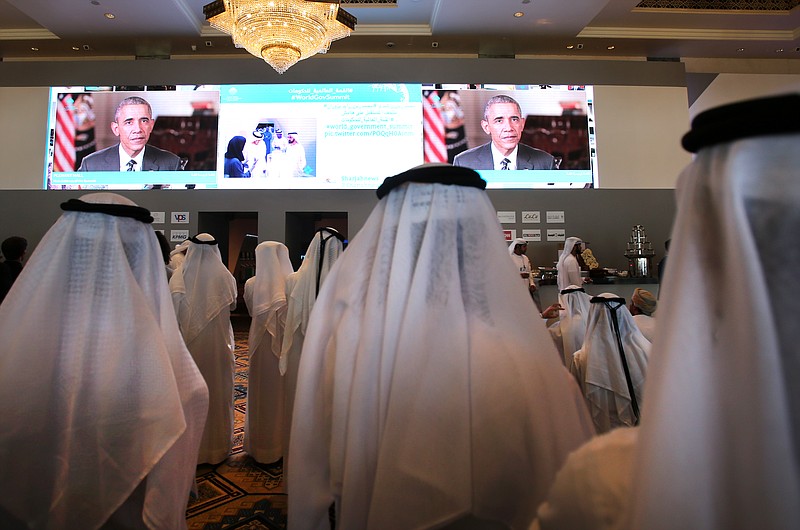DUBAI, United Arab Emirates (AP) - U.S. President Barack Obama and other world leaders called on governments to be responsive to and inclusive of their citizens at a conference in Dubai on Monday, as the unrest of the Arab Spring reverberates across the Middle East.
Those gathered for the World Government Summit offered no immediate solutions to the crises gripping the region, from low global oil prices and global warming to violent extremism. But all acknowledged that keeping government responsive to its citizens remains crucial.
"As we've seen in the tumult across the Middle East and North Africa, when governments do not lift up their citizens, it's a recipe for instability and strife," Obama said in a video address shown at the summit.
Five years after the Arab Spring promised democratic change, much of the Middle East remains mired in chaos, with civil wars in Syria and Yemen, militia rule in much of Libya and the Islamic State group in control of a self-styled caliphate in the heart of the region.
Mideast governments that rely on oil have begun cutting their spending as crude prices hover around $30 a barrel, down from $107 over the last 19 months.
Youth unemployment remains high in the Mideast and is growing in other regions, causing many to grow suspicious of those governing them, said Jose Angel Gurria, secretary-general of the Paris-based Organization for Economic Cooperation and Development.
"It is the curse of modern times," he said.
World Bank President Jim Yong Kim echoed that point, calling on governments to remain open and transparent.
"Governments that operate in opaque, exclusive and unaccountable ways or fail to empower local authorities often plant the seeds of discontent," he said. "When governments don't allow the public to participate in decisions, it breeds suspicions."
___
Follow Jon Gambrell on Twitter at www.twitter.com/jongambrellap .
